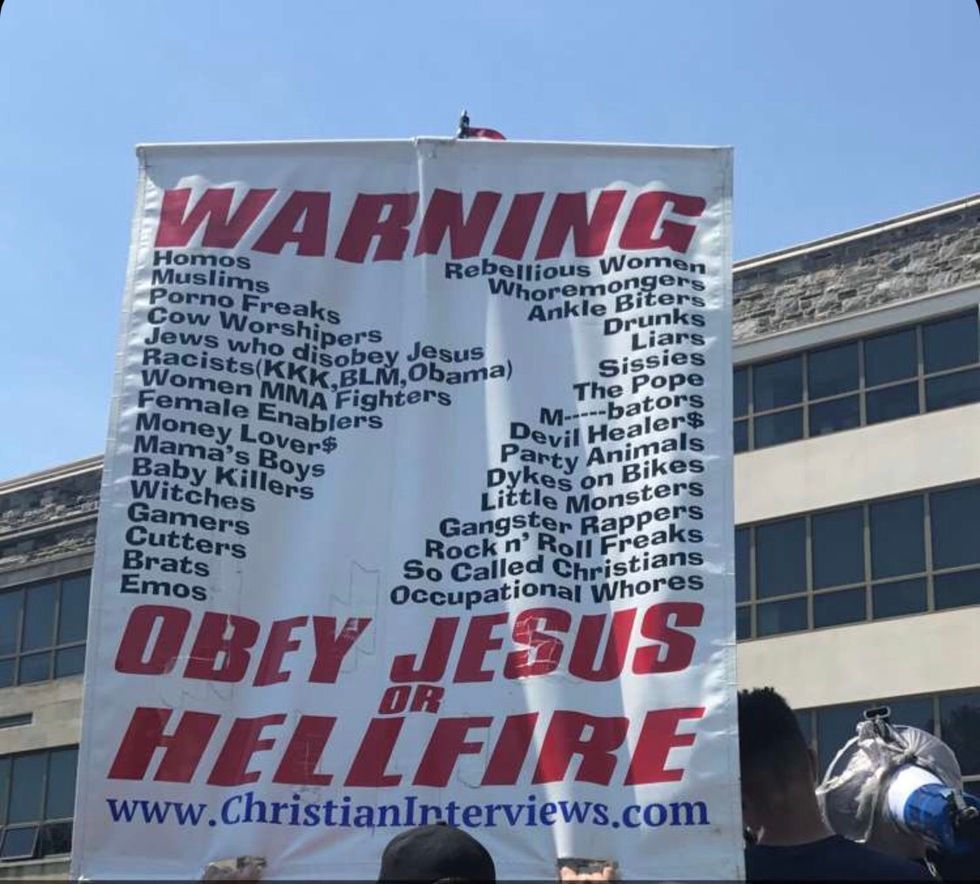In the year 2019, society assumes that we are more equal than ever before. You might as well throw away any inclination that racism, sexism, homophobia, anti-Semitism, Islamophobia, and any other form of hate have a place in this world. After all, it is 2019. Racism? Jim Crow was ages ago. Sexism who? Women's suffrage was over a century ago. Yet, these sarcastic comments show how we constantly dismiss hate rather than defeating it. In these moments, is it so unrealistic to assume that hate has grown because of our refusal to acknowledge it? What if our "It's 2019" remarks are just an excuse? Ultimately, the question is not only what if hate is alive in our world but also what if hate is alive and well in 2019?
Let me clarify something: unfortunately, some form of hate will always exist in the world. There were racists way before the nineteenth century and there will be generations after us. I am not suggesting that the world was, is, or ever will be a place where we hold hands with one another and sing Kum-bi-ya. While it is as painful to write as it is for you to read, hate will always exist. However, there is a difference between acknowledging the inevitable reality that hate persists and acknowledging the growth of hate groups overtly spreading bigotry throughout the United States.
According to the Southern Poverty Law Center, there were over one-thousand established hate groups found in the United States in 2018. If you click on this link, you will be brought to the SLPC's "Hate Map", which shows a drawing of the United States and every dot represents an established hate group's location in the country. On the side tabs, you can search for more specific hate groups by selecting a radical ideology. Some ideologies include anti-immigrant, anti-Muslim, anti-Semitic, neo-Nazi, etc.
When you click on a dot on the map, you can see the name of the hate group, and you can search their organization on Google and find their website within seconds. When I first searched this map, I found an organization called Committee for Open Debate on the Holocaust, whose absurd purpose is to engage in "intellectual debates" that diminish the atrocities of the Holocaust. Yes, there are actual people in the world who firmly deny that the Holocaust happened. These Holocaust deniers have eight established hate groups throughout the United States in six different states, including New York, Maryland, Pennsylvania, Texas, Idaho, and California.
Although hate groups have a well-known presence within the United States, and we are oblivious to them. We can owe this ignorance to our narrow-minded perception of "hate group". When you hear the words "hate group", what do you think of? Do you think of the Ku Klux Klan, Charlottesville, Blank Panther, Nation of Islam? When you think of "extremists", who do you picture? And when you think of the people in hate groups, do you think of them as rational, every-day people? Of course not.
Last year, a hate-group visited my campus. I was caught by surprise when I heard a man shouting into a megaphone. At first, I did not know what he was saying, but as I got closer, I heard him say incredibly inflammatory things to whoever walked past him. The man was Pastor Aden Rusfeldt, the pastor of Key of David Christian Center, a non-denominational Christian church. Pastor Aden travels around the Philadelphia tri-state area, including college campuses such as Villanova, Rutgers, and Temple in order to "spread his Church's message" which can translate to something along the means of "convert or burn in hell" (I'm paraphrasing... kinda).

The most disturbing thing I witnessed that day was not Pastor Aden yelling hateful remarks at me and others passing by but rather the two young boys surrounding him with posters that read extremely disturbing and hateful sayings on them. In that instant, I realized that hate spreads through brain-washing. These young boys were raised to hate certain groups of people for no reason other than that was what their delusional head of their church led them to believe.
While this example seems extreme, it is true, but, not all hate groups seek out college campuses with signs reading "God hates you". Sometimes, hate can be expressed in subtle ways that do not cause as much uproar or even worse are tolerated. This hate emphasizes inaccurate generalizations of marginalized people and perpetuates bigotry.
This kind of hate ejects individuals from coffee shops because of one's race. While Jim Crow may be long dead, it seems as though its ugly history of marginalization persists even in Philadelphia. This kind of hate relies on stereotypes, and it inaccurately characterizes Jewish Americans as greedy. It is the same hate that rejects the existence of Israel on maps. In the same way, this hate scrutinizes against people who look different from them. This kind of hate openly degrades women, referring to them as less than in society.
These are only a few examples of how hate is well and alive in our current society.
In these moments, it is important to condemn all forms of hate. In the end, hate has no loyalties. It does not side with one political party over the other, it can be seen on all points of the spectrum in any shape or size. However, no matter how small or subtle, all hate must not be tolerated. At this time, all people can unite regardless of faith, ethnicity, race, sexual orientation, or any other identity in order to firmly suppress hate. While hate may always exist, we have the power to unite as people and affirm that hate shall not have a place here.














